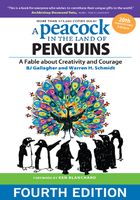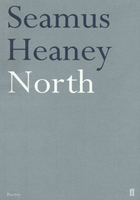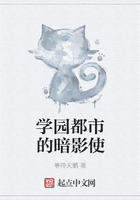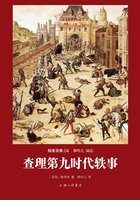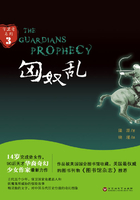When I joined Faber in 1979, weeks after Mrs Thatcher became prime minister, William Golding's Darkness Visible was the novel on the Autumn list that everyone was talking about. Charles Monteith, who had just appointed me, was especially proud of the book. Ever since Lord of the Flies (1954), Golding had always been his editor's calling card.
But Golding hadn't published any new fiction since the three novellas of The Scorpion God (1971). For almost a decade, he had been terribly 'blocked', troubled by the darkness both in the story and in his own middle passage of life. Nursing Darkness Visible to publication was an in-house triumph. Only later did I come to understand what Monteith had gone through.
Faber has always depended on its great writers to deliver. This tortured manuscript would be a commercial as well as an artistic milestone. As the new boy, I took this in from the wings. My job was to find the next Golding, and I had not yet read some stories by a young man from Catford named Kazuo Ishiguro.
Then, perhaps sensing the hot breath of a new generation, Golding pulled a surprise. Barely a month after the launch of Darkness Visible, word came down from the chairman's penthouse office that Bill had not been as 'blocked' as we'd been told. In fact, he had just delivered a new one, written almost simultaneously. Monteith, more generous and supportive than I deserved, wondered if I would care to take a look at 'the new Golding'? It was, apparently, a compelling quasi-epistolary narrative, a sea-faring drama of the eighteenth century, and a wonderful return to form.
Rites of Passage – I can see the typescript with my inner eye – arrived on my desk in the New Year of 1980. The moment I began to read I knew – we always say this in hindsight, but I remember so well the thrilling sensation of something that's new and original – I knew this was a winner. But Monteith was wrong. It was not really about the sea. Narrated by a toff, Edmund Talbot, en route to Australia, it was, essentially, about England. And what it was really about was: class.
Later, when I got to know him better, I came to understand that Rites of Passage dramatised, in nautical form, one of its author's lifelong obsessions, his resentment of social inferiority. The son of a socialist and a suffragette, William Gerald Golding had been born at the wrong – the lower-middle-class – end of Marlborough, excluded from the charmed lives of the posh boys who went to the College.
Wartime had been an escape, darkened by terrifying intimations of man's inhumanity. Then, after naval service, he had reluctantly returned to school-teaching as 'Scruff' Golding, the shy, oddball English teacher at Bishop Wordsworth's School just outside Salisbury. Only with the publication of Lord of the Flies in 1954 did Golding begin to liberate himself.
But he was never at ease, even with literary recognition. When I came to know him, years later at Faber, he was garlanded with both the Booker and the Nobel prizes. But he always struck me as someone who was not just socially awkward, but mildly belligerent about his awkwardness, too.
In interview, his daughter Judy says that, with her father, the touchy subject of class is something 'you cannot make too much of'. She adds that 'the good burghers of Marlborough' never failed to arouse the most bitter feelings of social inadequacy. For Golding the class gulf was 'as real as a wound', and contributed to terrible episodes of rage throughout his life.
For Golding the sea had always been an escape, but that was now denied to him. In 1966, more than a decade after the publication of Lord of the Flies, he had bought a gaff-rigged sailing boat, a Dutch cutter named Tenace. On one of its very first voyages, Tenace had been run down in sea-fog by a freighter and sunk. Golding and his family had been lucky to escape with their lives.
The years that followed were difficult. Golding was in torment. After what he saw as the failure of The Spire (1964), he could not write. He would no longer sail; he wrestled with demons; and he drank to excess. Rites of Passage became the visceral release from this predicament.
If there was one thing that tortured Golding as deeply as the wounds of class, it was his sense of inadequacy, of being a figure of fun. This was partly self-mocking, his daughter remembers: 'He was one of the funniest men I knew. And he would laugh at himself. Poor old Dad, one of the roles he felt he fulfilled was that of a clown. In life, he felt he was clownish, in the good and the bad sense.'
Colley, a classic fictional clergyman, joins Mr Collins in Pride and Prejudice as a figure of fun, though in much grimmer circumstances. His fate, which dominates the second half of Talbot's narrative, takes him into 'a hell of self-degradation' profoundly expressive of Golding's battle with himself and his place in the world.
So Rites of Passage is about its author, and every class of English men and women at sea – officers, sailors, soldiers and emigrants all jostling for space below decks. On board a ship that becomes a microcosm of English society, the tensions, humiliations and vanities of English life become enacted beneath the vast, indifferent canopy of the ocean sky.
During the voyage to the ends of the earth, the novel that went on to win the 1980 Booker Prize reconciles all William Golding's inner conflicts, and transforms them into a work of art. Rites of Passage celebrates a great sea journey; it tackles vexed issues of class and sexuality; and it shows off Golding's prose at its most edgy and exhilarating.
I remember him describing how, when he was working well, he felt as though his prose was flowing down his arm to his writing hand. It was, he said, as if he was taking dictation from his unconscious. That was a typical flight of Golding fancy, but when you look more closely at these pages, you will find a writer finally at peace, a man who knew how to tune the elements into the rare music of great fiction.



